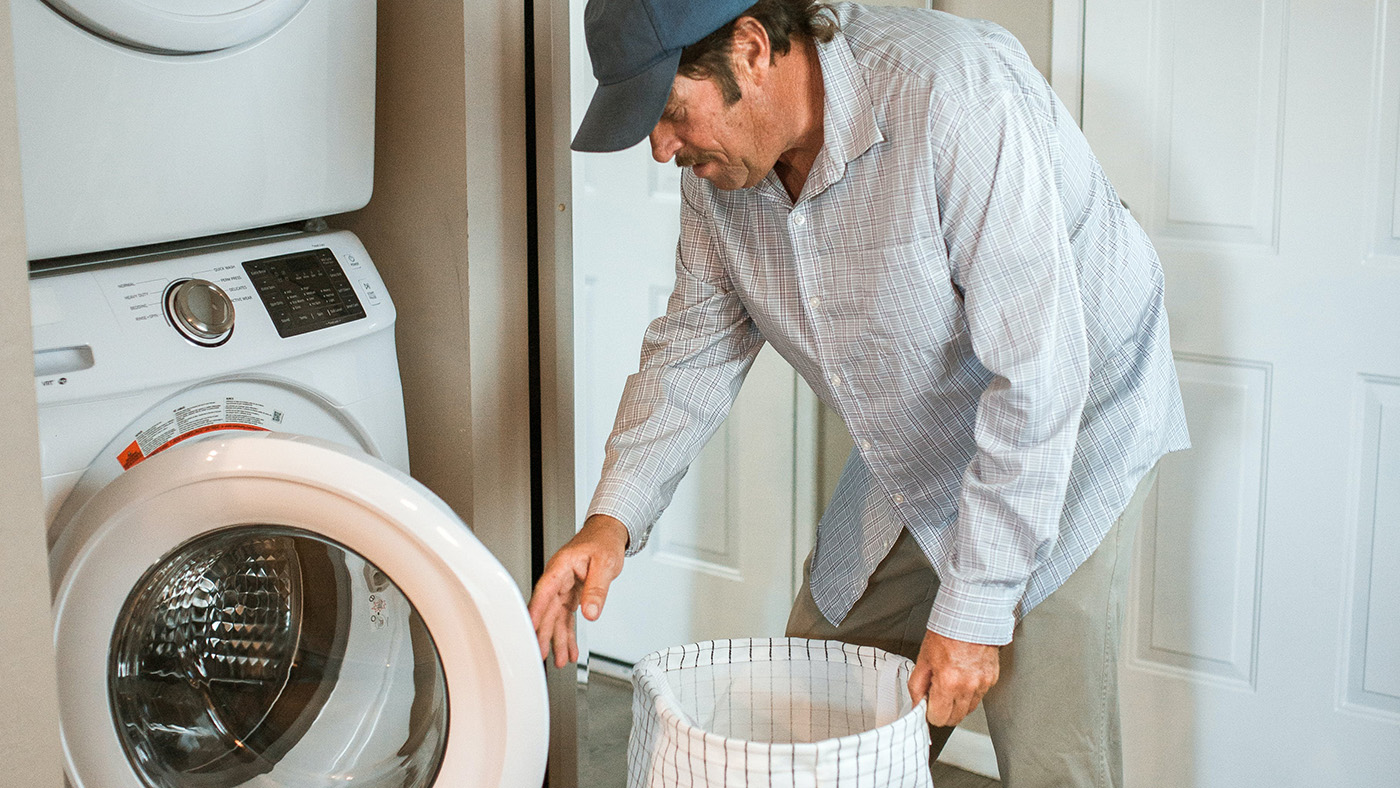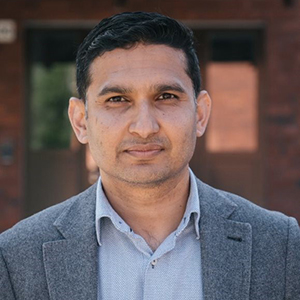Rent your wash – a new spin on laundry business models

Ever wondered if you really need to own everything in your home? Well, the future might have us washing clothes without owning washing machines. Researchers at KTH are testing a business model, pay-per-wash, to help us move towards a more circular society. This research has even secured a spot on the European Commission's prestigious list of success stories.
Picture this: you subscribe for a washing service from a company. The company installs a washing machine at your home without any down payment, much like leasing a car. If something malfunctions, the company takes care of it, and you only pay for the actual washing you do, so the less laundry, the cheaper it is.
“This is part of a business approach we might see more of as we transition to a more circular society,” says Farazee Asif, researcher at the Department of Production Engineering spearheading the project. He emphasizes how circular manufacturing systems, ones that reduce resource consumption and waste, play a pivotal role in the circular economy.
The initiative known as the 'ReCiPSS' project, teamed up with white goods giant Gorenje and converted 333 washing machines and dryers to fit the new business model. Each machine got sensors to track operational information and wash cycle statistics, such as temperature and load. This data is accessable to users, service providers and manufacturer to optimize business operations and usage.

“The machine warns when it needs maintenance and gives users tips on saving energy costs and reducing water consumption. The entire cycle involves refurbishing and recycling the machines,” Asif explains. The result? Machines last longer, resource consumption decreases, and overall use becomes more eco-friendly.
Hassle free service
While the pay-per-wash model may not necessarily be cheaper for consumers, Asif underscores the benefits: “If you have an issue, it is sorted out even before you notice something is wrong with the machine. And when you want a bigger or newer machine, the company takes back the old one, refurbish it and send it to someone else.”
The team has explored various offers, with the most expensive option guaranteeing a brand new machine with top-notch customer service. The next step is for those open to a refurbished machine that one user has had before. The third option is a refurbished machine that two users have had before, not only the cheapest but also the most eco-friendly.
“This is a new way of doing business,” explains Asif. “Instead of focusing on just selling as many machines as possible, it’s all about offering functions needed considering the circular economy principles.”
“Companies can benefit by creating long-term relationships. Initially, it costs more since households don’t pay full price for the washing machines, but our models show that, in the long run, companies can make as much or more from these services. And as we know, being an early adopter of a circular economy can bring benefits.”
Asif envisions a future where we might not own everything at home. This is just the beginning of how the white goods industry could revolutionize things. And he is joined by Magnus Wiktorsson Head of the Department of Production who coordinated the ReCiPSS project during its last year:
“This research has a great impact on establishing a circular society. I am very proud that the European Commission has showcased our research as a success story to motivate others to follow our footsteps,” concludes Magnus Wiktorsson.
Text: Anna Gullers
